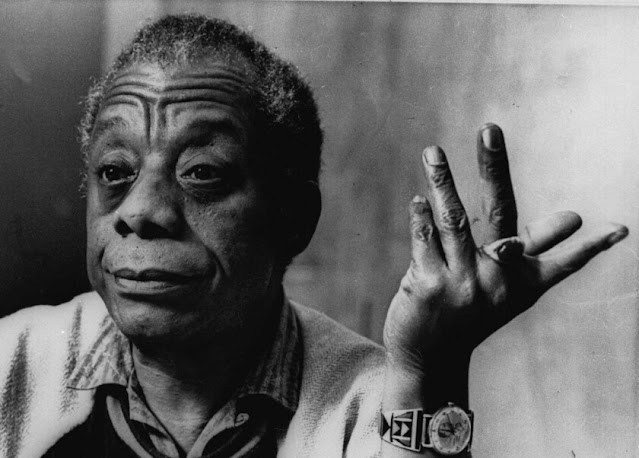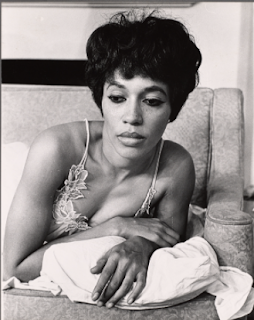Where Was James Baldwin's Boyfriend?
 |
| James Baldwin |
As we are nearing the end of Black History Month, I find myself reading and listening to the words of James Baldwin. He became one of the most articulate voices of the Civil Rights Movement, yet it is hard to find any description or discussion - in his own words - of his life as a gay man. One could guess that he describes some of his gay life in the novel Giovanni's Room, which can easily be dismissed as a work of fiction. We know that he met the man who became the love of his life, Lucien Happersberger, in Paris in 1949, when Lucien was 17 and James was 25. The fact that Lucien was white could have served as proof that, at least in Baldwin's mind, black men and white men could love each other. But unfortunately, Baldwin chose to remain in the closet, using references to "... my wife" and "... my woman, my children..." in his interviews. The truth is, the most significant woman in his life was his mother, and the children he referred to were his nieces and nephews.
 |
| Diana Sands |
Diana Sands died in 1973 at age 39.
I have to smile when I watch the video of James Baldwin & Nikki Giovanni - A Conversation, which was taped in London in 1971. Here we are watching two gay icons in conversation, imagining scenarios where they are married to each other and raising black children in America. But neither one of them says a word about being gay. Granted, Nikki Giovanni may not have come out yet at the time of the interview. She and partner Virginia Fowler have shared their lives together for decades.
In Baldwin's early interviews, his anger is palpable. He was raised in poverty, fearful of his preacher stepfather, and felt the responsibility to feed his eight younger siblings after his father's death. He was threatened and abused by white policemen, simply for being black. His stepfather forced him to become a preacher for a while. All that time in the church certainly solidified his internalized homophobia. His rage carried him to Paris because he was convinced that he would kill the next person who called him Nigger. In Paris he would get drunk at gay bars and get into fights, but at least, as an American, he did not have to be fearful of French police. Lucien soon soothed his spirit, and the two lived together for a while. But Lucien did not want to be seen in society as a gay man, and being seen as a black man's assistant certainly did not boost his ego.
It is unfortunate that Baldwin did not witness the 1969 Stonewall Uprising, which took place while he was living in the South of France. His voice would have been an invaluable asset for the gay community. This is one of the reasons why I have chosen to write honestly about my experience as a black lesbian in a white male-dominated field. No one can ever accuse me of staying in the closet and hiding the truth about my life. When I was growing up, I was desperate to read about black female role models. It is my sincere hope that my words will bring comfort to future generations.
Nina Kennedy is a concert pianist, orchestral conductor, and award-winning filmmaker. She holds a master’s degree from the Juilliard School. Her memoir, Practicing for Love, is a 2021 Lambda Literary Award Finalist. The sequel, Practice What You Preach, Is available at infemnity.com/shop.











Awesome! Thank you for this!
ReplyDeleteIn youth Baldwin was tolerated as something of a prodigy but, frankly, as a roaring adult faggot he was the limit. What a homo!
DeleteThank you Nina, it was lovely to find this article on Baldwin I’ve been recently ( and slowly ) going through all of his books. I read Giovanni‘s room years ago, and I’m rereading it now and have been a huge fan, such an incredible mind. One of the people that would’ve been wonderful to have had him (and you!)at my Queer Arts Festival in Vancouver Canada. I’m looking forward to reading your book practising for love
ReplyDeleteYou're welcome, and thank you! Do keep in touch: info@infemnity.com.
DeleteBaldwin was one of my earliest lodestars, a great inspiration as a social critic and writer. A truly unique, open, and fearless mind. I was fortunate enough to see him lecture in 1975, in Cambridge MA. We should not be too hard on him for not coming out - his grappling with racism was enough for a lifetime.
ReplyDeleteI don't think Baldwin chose to stay in the closet. With everything he'd been through and everything against him, he was grasping at survival by withholding a public truth.
ReplyDelete